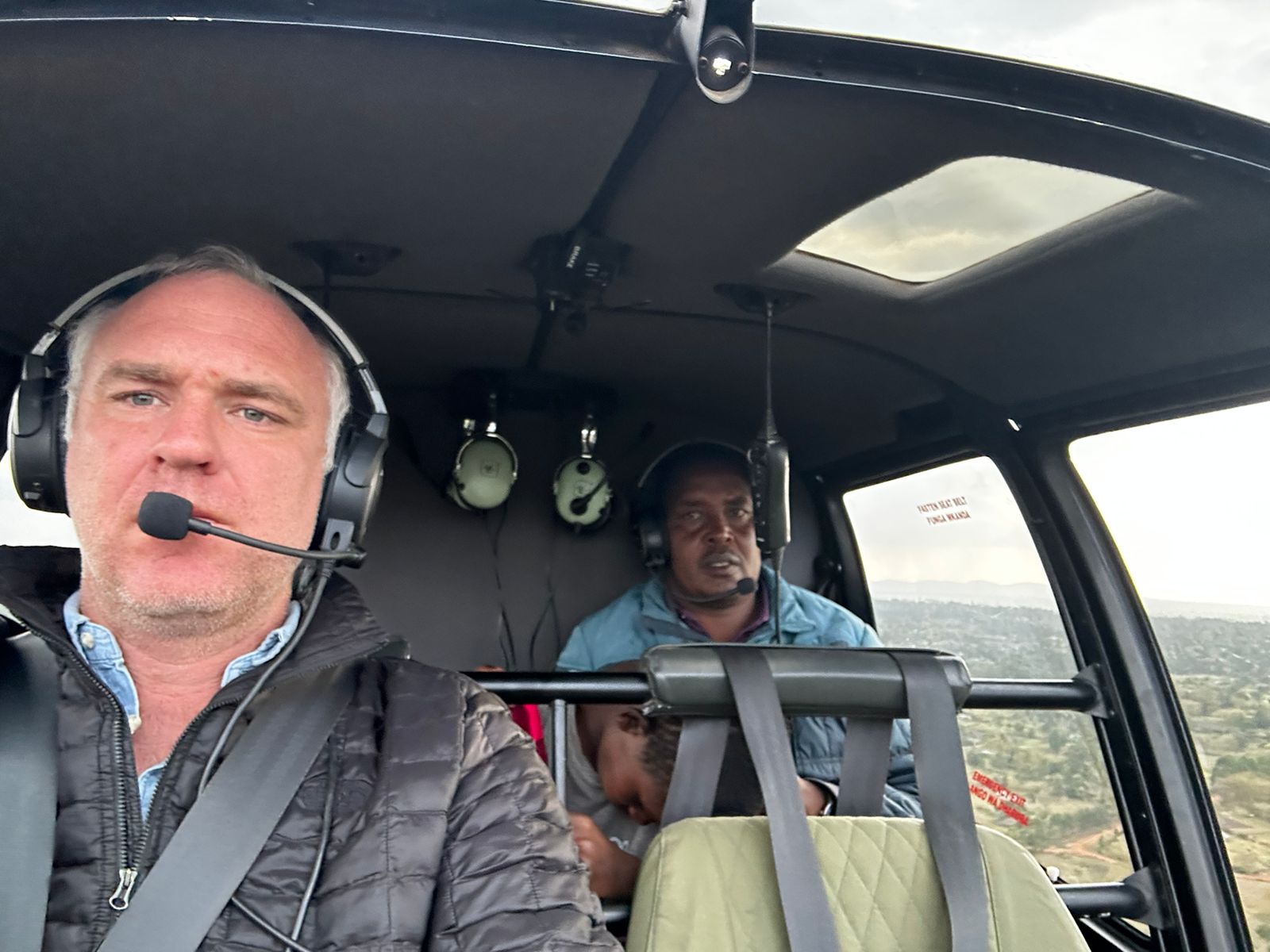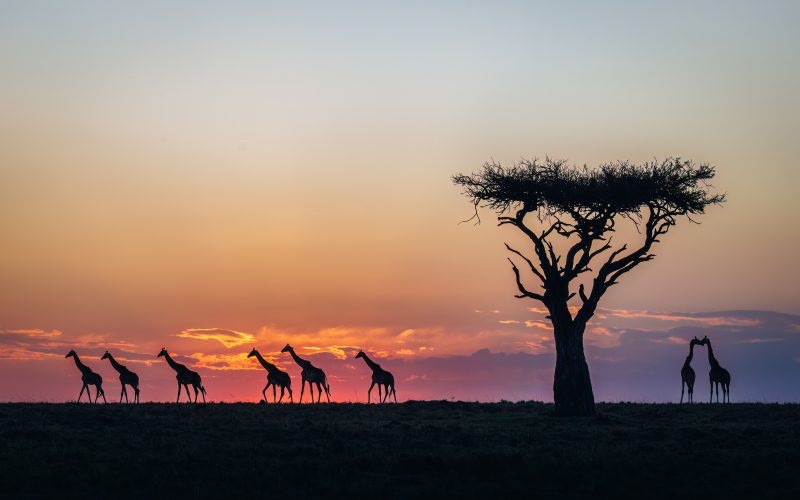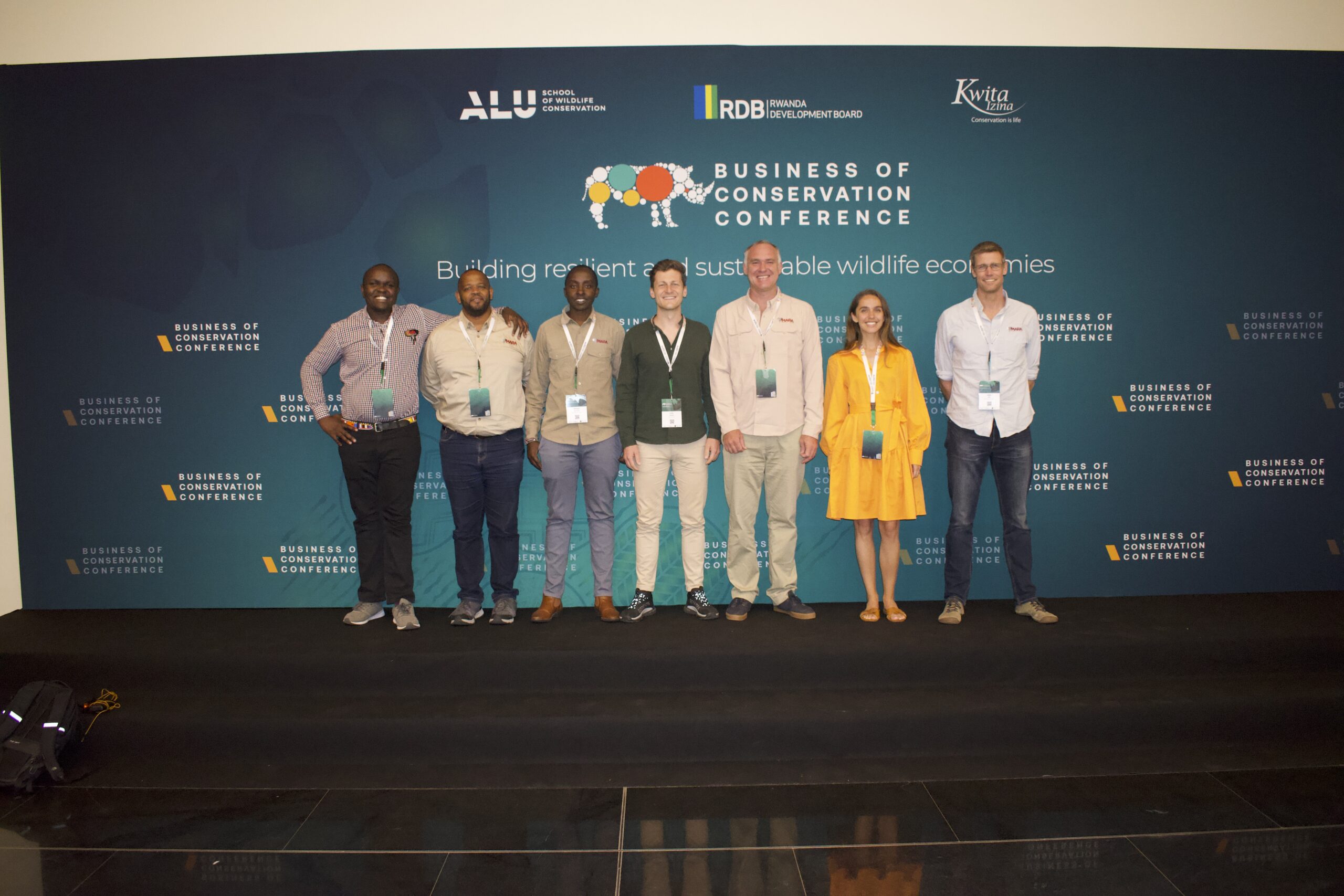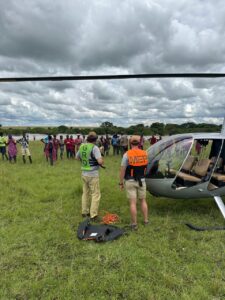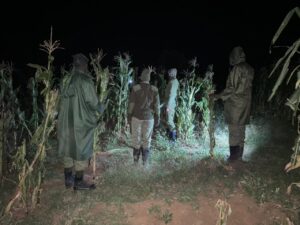 August was similar to July and saw a high number of conflict incidents. Luckily, drones are now a frequent tool for MEP rangers to rapidly respond. In August, MEP received a report from a frustrated farmer who had four bull elephants raiding his crops. MEP rangers stationed nearby immediately responded and used a drone to move the elephants out of the fenced in crops and back into the wildlife protected area. Our rangers remain vigilant in their areas of operation to protect crops which are important for livelihoods, local communities and elephants.
August was similar to July and saw a high number of conflict incidents. Luckily, drones are now a frequent tool for MEP rangers to rapidly respond. In August, MEP received a report from a frustrated farmer who had four bull elephants raiding his crops. MEP rangers stationed nearby immediately responded and used a drone to move the elephants out of the fenced in crops and back into the wildlife protected area. Our rangers remain vigilant in their areas of operation to protect crops which are important for livelihoods, local communities and elephants.
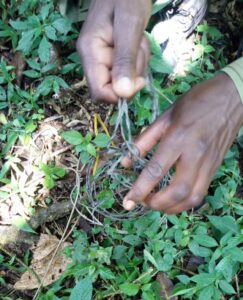 The MEP/ Sheldrick Wildlife Trust (SWT) Mau De-Snaring Unit partnered with the Bongo Surveillance Project (BSP) and Kenya Forest Service (KFS) in August to remove and destroy snares targeting wildlife for bushmeat. These snares pose a great risk to the critically endangered mountain bongo antelope and can become entangled on limbs of larger wildlife like elephants causing severe injuries and even death.
The MEP/ Sheldrick Wildlife Trust (SWT) Mau De-Snaring Unit partnered with the Bongo Surveillance Project (BSP) and Kenya Forest Service (KFS) in August to remove and destroy snares targeting wildlife for bushmeat. These snares pose a great risk to the critically endangered mountain bongo antelope and can become entangled on limbs of larger wildlife like elephants causing severe injuries and even death.
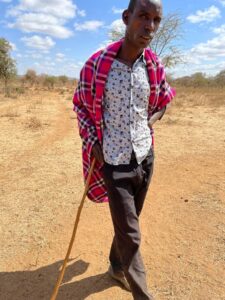 In August, the MEP “Lima” ranger team put their newly acquired skills to the test after a man was injured as a result of an elephant. Sironka was herding livestock in Mosiro with a herd of 70 elephants nearby and was injured when an elephant charged and knocked down a tree on top of him. Luckily, MEP rangers were nearby and they responded by moving elephants away from the scene and administering first aid to Sironka before transporting him to a nearby clinic where and followed up with him after he was released.
In August, the MEP “Lima” ranger team put their newly acquired skills to the test after a man was injured as a result of an elephant. Sironka was herding livestock in Mosiro with a herd of 70 elephants nearby and was injured when an elephant charged and knocked down a tree on top of him. Luckily, MEP rangers were nearby and they responded by moving elephants away from the scene and administering first aid to Sironka before transporting him to a nearby clinic where and followed up with him after he was released.
Also in August, MEP rangers participated in a community meeting to highlight their work, promote co-existence and inspire the next generation of Kenyan conservationists in attendance.
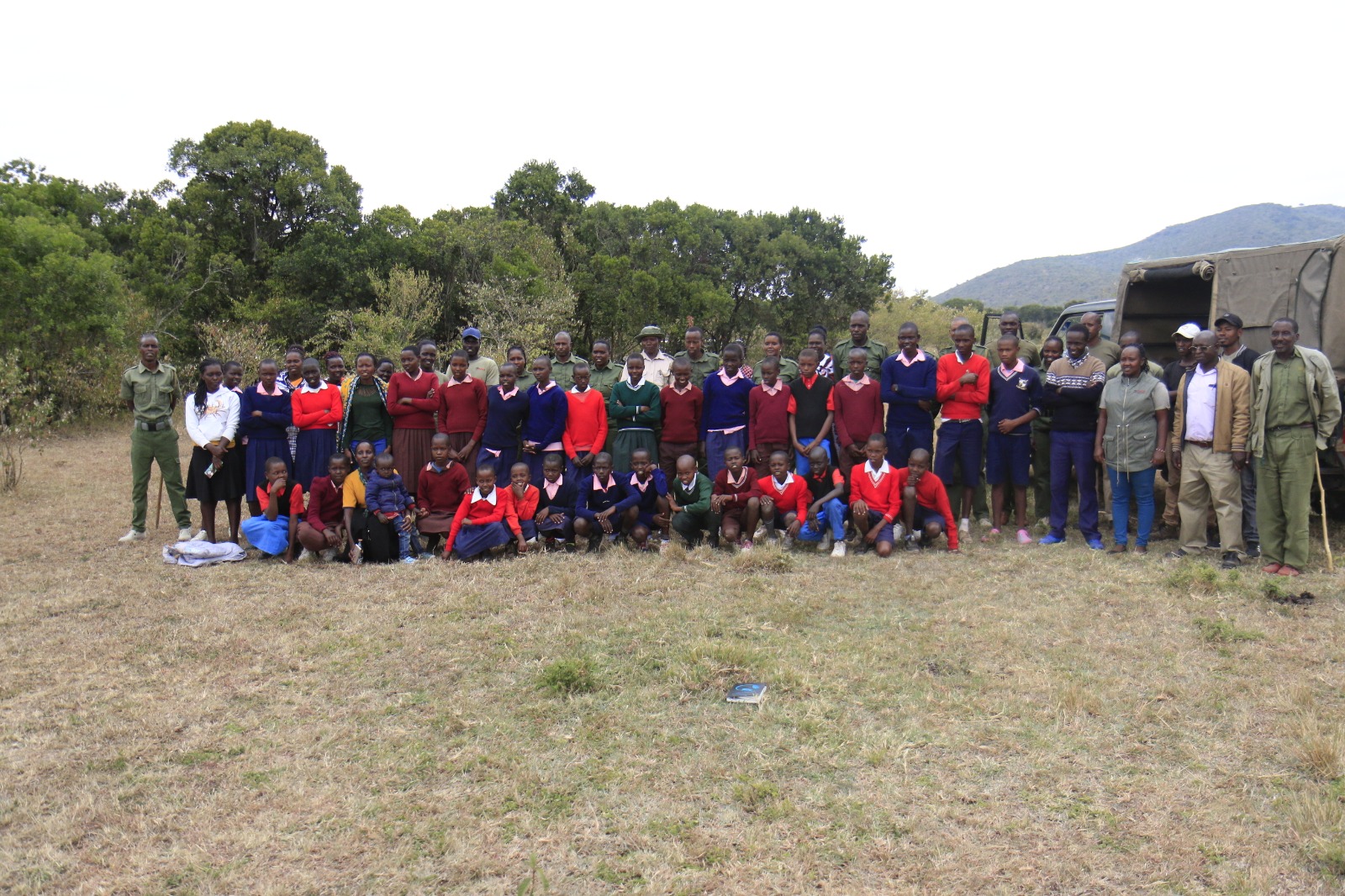
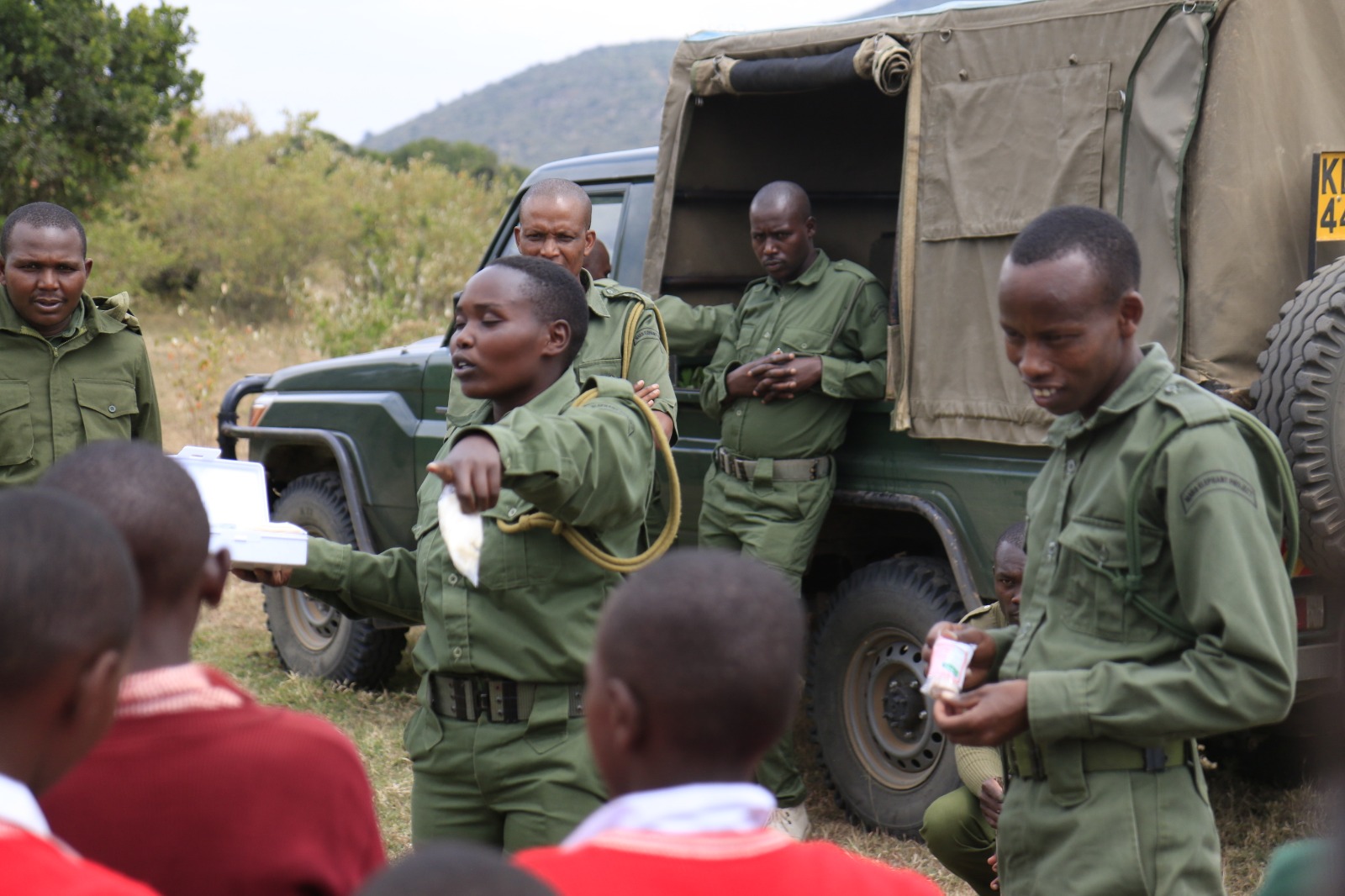
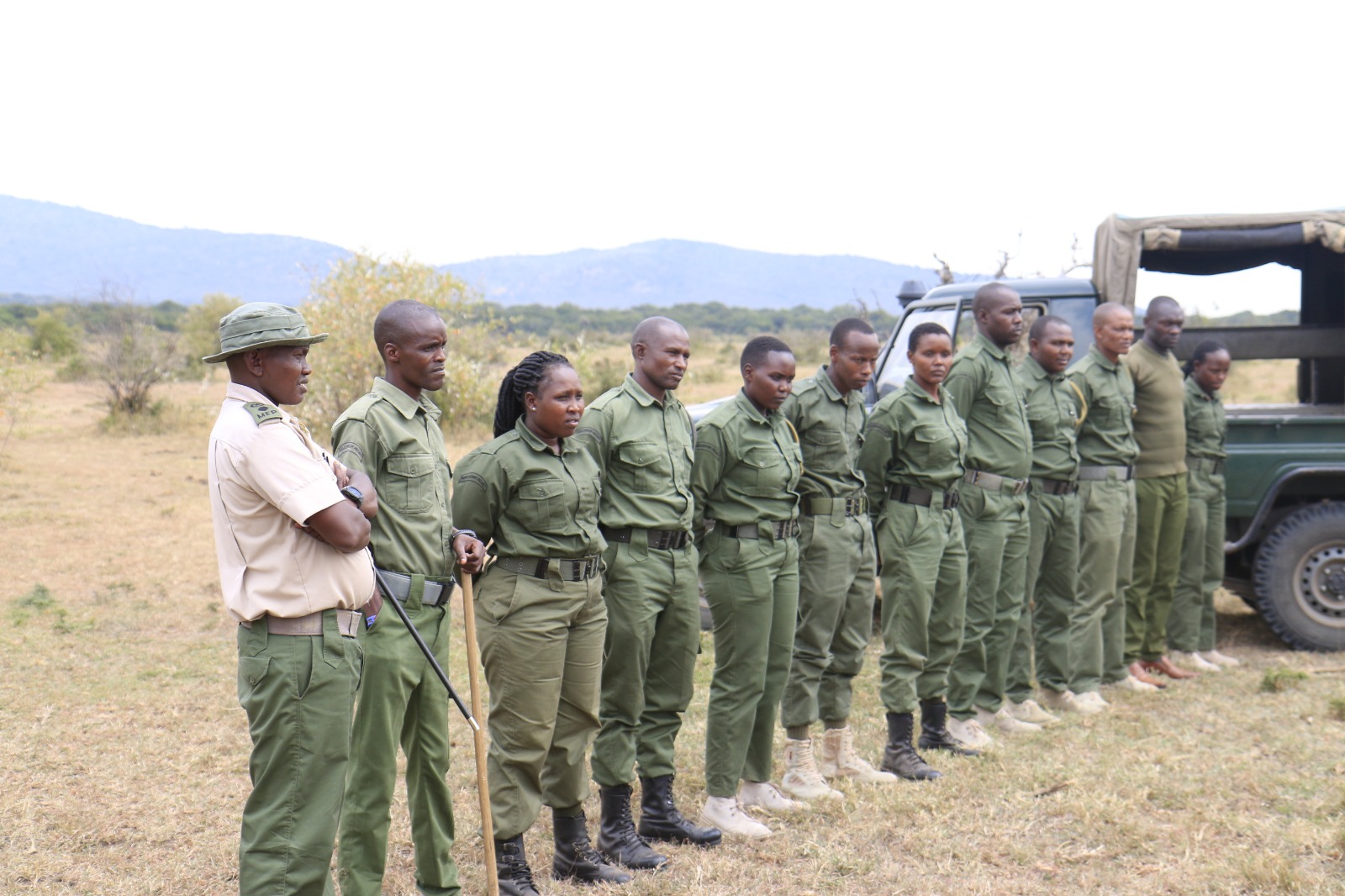
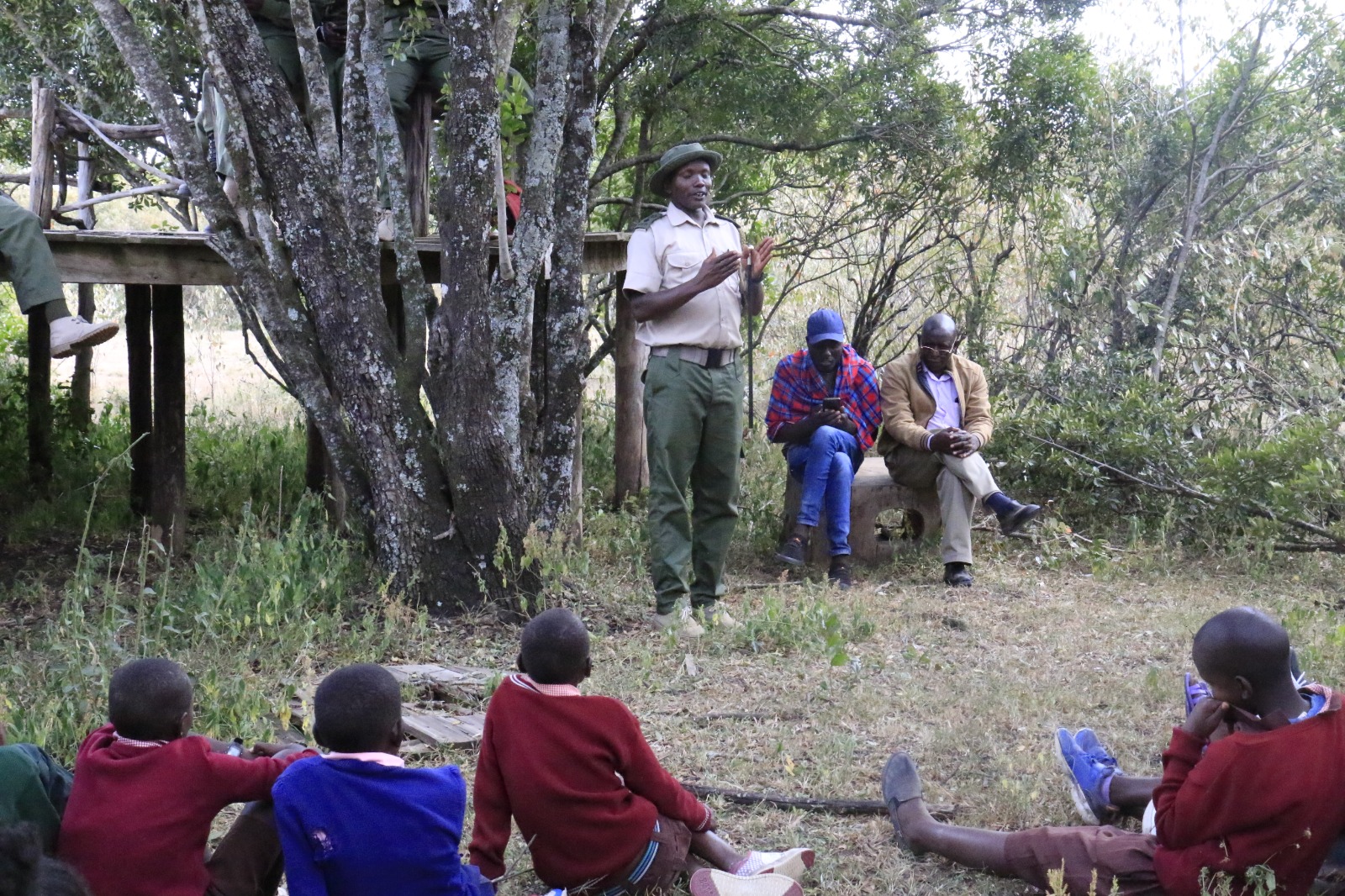
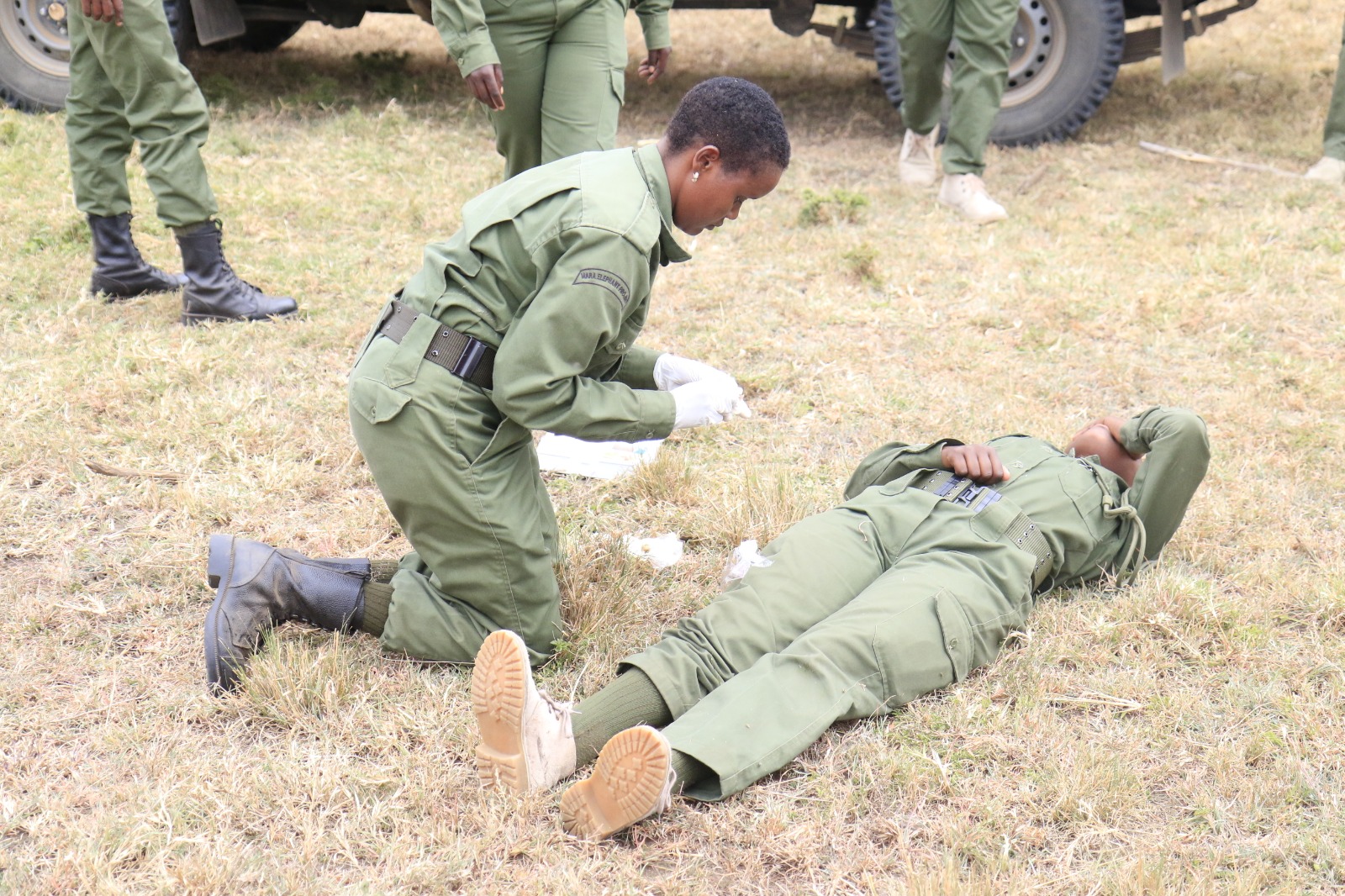
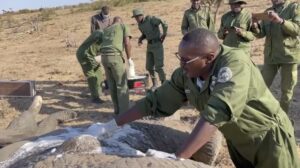 In late August, the MEP mobile ranger team came across an injured bull elephant during their routine patrol. The team immediately called in Kenya Wildlife Service (KWS) Vet Dr. Njoroge from the SWT Mobile Vet Unit to treat him for a spear wound on his right leg.
In late August, the MEP mobile ranger team came across an injured bull elephant during their routine patrol. The team immediately called in Kenya Wildlife Service (KWS) Vet Dr. Njoroge from the SWT Mobile Vet Unit to treat him for a spear wound on his right leg.
 Overall, in August, MEP rangers alongside government partners arrested one ivory suspect, four bushmeat poaching suspects and seven habitat destruction suspects. They confiscated 21 kg of ivory and 200 kg of bushmeat and removed 21 snares. They also confiscated 34 pieces of timber and 51 posts and destroyed 16 charcoal kilns. As we mentioned, MEP ranger mitigated 42 conflict incidents, just one less than July. In August, MEP rangers covered a distance of 3,136.9 km on foot and patrolled 17,692 km by car in the GME.
Overall, in August, MEP rangers alongside government partners arrested one ivory suspect, four bushmeat poaching suspects and seven habitat destruction suspects. They confiscated 21 kg of ivory and 200 kg of bushmeat and removed 21 snares. They also confiscated 34 pieces of timber and 51 posts and destroyed 16 charcoal kilns. As we mentioned, MEP ranger mitigated 42 conflict incidents, just one less than July. In August, MEP rangers covered a distance of 3,136.9 km on foot and patrolled 17,692 km by car in the GME.
On August 20, MEP celebrated World Helicopter Day and we highlighted the importance of the MEP helicopter, a vital tool that we use for aerial reconnaissance, wildlife monitoring, rapidly responding to mitigate conflict or in an emergency airlifting people for immediate medical treatment. In fact, in August, the helicopter was deployed to rapidly respond to move elephants out of farms, provide aerial assistance during elephant treatments and to airlift a community member injured by an elephant to the hospital.
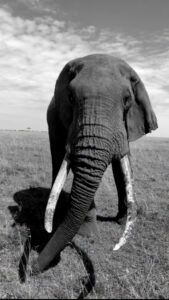 The MEP Research and Conservation Department welcomed Francis Odero & Eugene Kuloba to the team in August. Both have strong geospatial skills and will be helping with data analyses. In August, The MEP long-term monitoring (LTM) team monitored individual 2 from the MEP identified elephant database, ElephantBook. This bull elephant, known internally as Flopsy, has two distinguishable characteristics, he has no tail, and his left ear is floppy.
The MEP Research and Conservation Department welcomed Francis Odero & Eugene Kuloba to the team in August. Both have strong geospatial skills and will be helping with data analyses. In August, The MEP long-term monitoring (LTM) team monitored individual 2 from the MEP identified elephant database, ElephantBook. This bull elephant, known internally as Flopsy, has two distinguishable characteristics, he has no tail, and his left ear is floppy.
MEP celebrate World Elephant Day on August 12. Thank you to everyone who made it a success this year and supported the tools of conservation. Elephant Cooperation continued their commitment to supporting MEP’s drone program with a grant to purchase a new drone to mitigate conflict. We’ll be deploying the Elephant Cooperation drone to increase elephant protection soon.
The MEP Co-Existence Farm team celebrated World Elephant Day with conservation clubs from five local schools. The students learned more about elephants and together with Enoonkishu Conservancy we had an elephant drawing competition. Conservation clubs remain an important element of coexistence between wildlife and the communities as the pupils play a big role as ambassadors of conservation and in relaying information to their parents. We want to thank Kampur Travel Diaries for supporting our conservation education initiatives.
There were 17 entries in August in the Greatest Maasai Mara photo competition that supported MEP. Thank you to all the photographers who supported us. An entry from Kunal Shah.
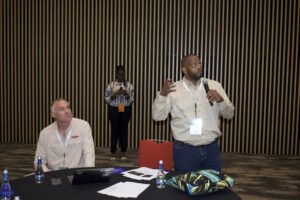 Finally, MEP took part in this year’s Business of Conservation Conference (BCC) in Kigali, Rwanda, an invitation-only event that brought together top African leaders, philanthropists, policymakers, innovators and students in the conservation space to discuss ways of investing in wildlife and their habitats to derive economic and cultural value for Africans. During the conference, MEP CEO Marc Goss and Deputy Chairman Kevin Rodrigues led a popular session that addressed how advanced drone and conservation technology training provide skills that support viable employment opportunities for men and women in or out of the conservation space. Mara Elephant Project was honored to participate and exchange ideas with over 300 others at BCC and is committed to contributing efforts to build resilient and sustainable wildlife economies.
Finally, MEP took part in this year’s Business of Conservation Conference (BCC) in Kigali, Rwanda, an invitation-only event that brought together top African leaders, philanthropists, policymakers, innovators and students in the conservation space to discuss ways of investing in wildlife and their habitats to derive economic and cultural value for Africans. During the conference, MEP CEO Marc Goss and Deputy Chairman Kevin Rodrigues led a popular session that addressed how advanced drone and conservation technology training provide skills that support viable employment opportunities for men and women in or out of the conservation space. Mara Elephant Project was honored to participate and exchange ideas with over 300 others at BCC and is committed to contributing efforts to build resilient and sustainable wildlife economies.
